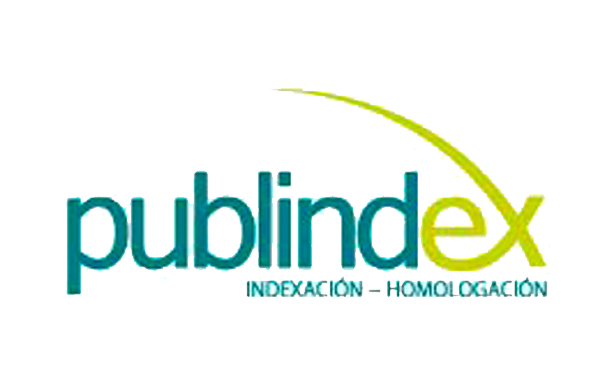Preparação Universitária: um modelo conceitual para trajetórias de estudantes em direção ao ensino superior
DOI:
https://doi.org/10.18634/sophiaj.15v.2i.865Palavras-chave:
Preparação para a universidade, Justiça educacional, Deserção, Ensino médio, ensino superior, sistema educativo colombianoResumo
A preparação para a faculdade (College and Career Readiness ó CCR) é um modelo educacional que determina as habilidades, comportamentos e conhecimentos que os alunos do ensino médio precisam para ter sucesso no nível educacional superior ou no trabalho. Na Colômbia, existem poucos estudos relacionados à preparação para a Universidade, portanto, este artigo tem como objetivo apresentar o modelo conceitual, pesquisas recentes na área e tópicos para uma agenda de pesquisa que incorpore dados de amostras de estudantes colombianos.Referências
Barrera-Osorio, F., D. Maldonado y C. Rodríguez. (2012) Calidad de la Educación Básica y Media en Colombia: Diagnóstico y Propuestas. Bogotá: Misión de movilidad social – DNP.
Conley, D. T. (2011). Reaching the Goal: The Applicability and Importance of the Common Core State Standards to College and Career Readiness. Oregon US recuperado de https://www.epiconline.org/publications/documents/ReachingtheGoal-FullReport.pdf
Conley, D. T. (2012). A Complete Definition of College and Career Readiness. Educational Policy Improvement Center (NJ1). Recuperado de http://www.epiconline.org/publications/documents/College%20and%20Career%20Readiness%20Definition.pdf
Conley, D.T., Darling-Hammond, L. (2013) Creating systems of assessment for deeper learning Stanford. CA: Stanford Center for Opportunity Policy in Education.
Conley, D.T. (2003). Understanding university success: A report from Standards for Success, a project of the Association of American Universities and The Pew Charitable Trusts. Eugene. OR: Center for Educational Policy Research.
Conley, D.T. (2003b) Mixed Messages: what state high school tests communicate about Readiness for College. Eugene. OR: Center for Educational Policy Research http://inpathways.net/mixed_messages.pdf#sthash.MiQvNCLh.dpuf
Conley, D.T. (2005) College Knowledge: What it really takes for students to succeedand what we can do to get them ready. CA: Jossey-Bass.
Conley, D.T. (2007a). Redefining college readiness, Volume 5. Eugene, OR: Educational Policy Improvement Center.
Conley, D.T (2007b). Toward a more comprehensive conception of college Readiness. Eugene. OR: Educational Policy Improvement Center. Recuperado de https://docs.gatesfoundation.org/documents/collegereadinesspaper.pdf
Conley, D.T. (2010). College and career ready: Helping all students succeed beyond high school. San Francisco, CA:Jossey-Bass.
Conley, D.T. (2013). Rethingking the notion of non cognitive, Education Week, 32(18), 20-21.
Conley, D.T. (2014) Getting Ready for College, Careers and the Common Core: What every educator needs to know. CA:Jossey-Bass.
Conley, D.T., & French, E.M. (2014). Student Ownership of Learning as a Key Component of College Readiness. American Behavioral Scientist, 58(8), 1018-1034.
Díaz, F. (1995), La predicción del rendimiento académico en la Universidad: un ejemplo de aplicación de la regresión múltiple. Enseñanza, 13, 43-61.
Duckworth, A.L, & Quinn, P.D. (2009). Development and validation of the Short Grit Scale (Grit- S). Journal of Personality Assessment, 91, 166-174. http://www.sas.upenn.edu/~duckwort/images/Duckworth%20and%20Quinn.pdf
EPIC (2009) Creating college readiness. Profiles of 38 schools that know how. Recuperado de http://www.ccrscenter.org/products-resources/resource-database/creating-college-readiness-profiles-38-schools-know-how
Komarraju, M., Ramsey, A., Rinella V. (2013) Cognitive and non-cognitive predictors of college readiness and performance: Role of academic discipline. Learning and Individual Differences, 24 (1), 103–109.
Ministerio de Educación Nacional Colombia (2010) Educación Superior: Boletín Informativo Ingreso Permanencia y Graduación. February 14th. Obtenido de http://www.mineducacion.gov.co/1621/articles-92779_archivo_pdf_Boletin14.pdf
Ministerio de Educación Nacional Colombia (2013) Acuerdo Nacional para disminuir la deserción en la Educación Superior 2013-2014. Recuperado de http://www.mineducacion.gov.co/sistemasdeinformacion/1735/articles-254702_archivo_pdf_politicas_estadisticas.pdf
OECD (2013), PISA 2012 Results: Ready to Learn: Students’ Engagement, Drive and Self-Beliefs (Volume III). Pisa: OECD Publishing. Recuperado de http://www.oecd.org/pisa/keyfindings/PISA-2012-results-volume-III.pdf
Olaya, P., Mosquera, J.C., Artamonova, I. (2009) Academic performance in Mathematics I predictions models on the Pereira Technological University, Scientia et Technica, 15(43), 258.
Olaya, P., Trejos, A. and Soto, J. (2004) Búsqueda de la relación entre áreas del ICFES en matemáticas, física y lenguaje y rendimiento en mar I y mar II a través del análisis de componentes principales, Scientia et Technica, 20, 133 – 139
Plunk, A.D., Tate, W.F., Bierut, L.J., Grucza, R.A. (2014). Intended and unintended effects of state mandated High School Science and Mathematics course graduation requirements on educational attainment, Educational Researcher, 20(10), 1- 12.
Ramsey, J. (2008). Non-cognitive Assessment and College success: the case of the Gates Millenium Scholars. Washington D.C.: Institute for Higher Education Policy
Rosefsky,A., Saaverdra, J.E. (2011) Do colleges cultivate critical thinking, problem a solving writing and interpersonal skills? Economics of Education Review, 30 (3), 1516-1526.
Schmoker, M. (2011) Can schools close the gap. Phi Delta Kappan, 93 (7), 70 - 73
SNIES (2013). Sistema Nacional de Información de la Educación Superior. Disponible en ww.mineducacion.gov.co/sistemasdeinformacion/1735/w3-propertyname-2672.html
SPADIES (2013) Sistema para la prevención de la deserción de la Educación Superior. Disponible en http://spadies.mineducacion.gov.co/spadies/JSON.html
St. Jhon, E.P., Masse, J.C., Fisher, A.S., Moronski,K., Lee, M. (2014) Beyond the bridge: actionable research. American Behavioural Scientist, 58(8), 1051 - 1070.
Strayhorn, T. (2011) Bridging the Pipeline: Increasing Underrepresented Students’ Preparation for College Through a Summer Bridge Program. American Behavioral Scientist, 55(2), 142–159.
Swail W.S., Redd K.E., Perna, L.W. (2003) Retaining minority student in Higher Education: A framework for success. ASHE-ERIC Higher Education Report, 30(2), Wiley Per. Inc., NJ: USA
Wiley, W., Shavelson, R.J., and Kurpius, A.A., (2014). On the factorial structure of the SAT and implications for next generation college readiness assessments, Educational and Psychological Measurement, 74(2), 859-87
Downloads
Publicado
Edição
Seção
Licença
Esta obra está bajo una licencia de CREATIVE COMMONS








